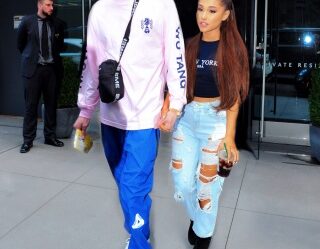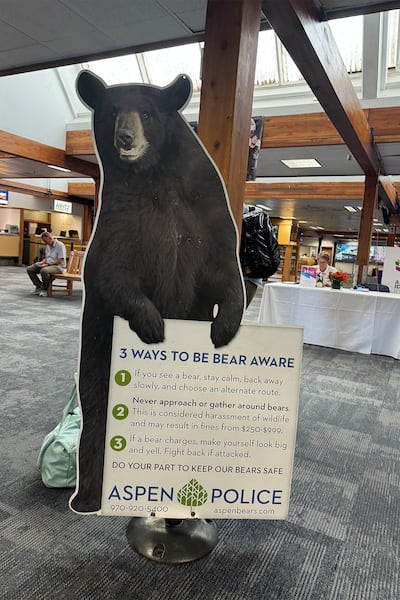
ASPEN, Colorado — One of the best things about my job is that while I am deeply immersed in all things fashion, I also have the opportunity to meet people outside the fashion bubble to learn and expand my mind, and bring the insights I take away back to my work here at The Business of Fashion. This combination of insider access, with an outsider’s perspective, has always informed my take on fashion and luxury.
This week, after attending Dries Van Noten’s final show for his namesake brand on Saturday evening, Vogue World on Sunday evening and five haute couture shows on Monday — Schiaparelli, Dior, Rahul Mishra, Thom Browne and Giambattista Valli — I flew to Aspen, Colorado where I was invited to speak at the 20th annual Aspen Ideas Festival by former Vanity Fair editor Tina Brown, who curated this year’s event.
This meant I missed some important fashion moments at the Paris couture shows, including Nicolas di Felice’s beautiful guest turn at Jean Paul Gaultier and Demna’s annual couture collection for Balenciaga, both of which I had to experience through Tim Blanks’ review on BoF, just like the old days when I would carefully read every word of what Tim wrote during his time at Style.com.
They say everything in life is about making trade-offs. So was this one worth it?
Going from Paris to Aspen felt a little like whiplash, and not just because of the 14 hour flight (via Dallas) and the eight hour time difference. The first thing I saw when I arrived at the tiny Aspen airport teeming with private jets was a warning about bears! But once I settled into my hotel and began attending talks scattered across the campus nestled in the Colorado Rockies, I got into the rhythm pretty quickly.
It was 75 years ago this week that Walter Paepcke, founder of The Aspen Institute, first convened leaders here to mark the 200th birthday of noted German polymath and writer Johann Wolfgang von Goethe. This gathering eventually gave life to the first Aspen Ideas Festival in 2005, drawing expert speakers and leaders from a wide range of disciplines and backgrounds to engage in deep discussions about the forces shaping the world around us.
For the thought leaders and business moguls gathering in Aspen, anxiety is rising about the outcome of the US election in November, and the impact that the potential return of Donald Trump to the White House would have in exacerbating the challenges we face from the most serious technological, geopolitical and ecological issues of our times.
A wide-ranging and expertly curated opening session examined the latest thinking from OpenAI founder Sam Altman, the global leader in the race for developing artificial intelligence, and his friend Brian Chesky, co-founder of Airbnb; the complex “American Vortex” characterised by bitter partisan divides, a broken immigration system, vast income inequality and lack of faith (and participation) in the democratic process; and the worsening climate crisis with 86 year-old actress-cum-climate activist Jane Fonda, who in a rousing conversation with Katie Couric implored attendees not to vote for Donald Trump who could take the US out of the Paris Climate Accord again.
As the festival progressed, it also became clearer to me how deeply intertwined all of these topics are. As the world is once again experiencing the hottest year on record, climate-driven migration is dividing societies in North America and Europe who fear they cannot accommodate all of these asylum seekers, leading to the rise of far-right political movements which prey on the fears of populations still contending with higher cost of living brought on by high inflation and high interest rates following the pandemic. In the United States, this is most acutely felt by people in marginalised Black and Native communities who often don’t participate in the democratic process because the system as it stands has never worked in their favour.
Meanwhile, the artificial intelligence revolution is being led by the same already dominant tech companies in Silicon Valley which are competing to develop AI. Unchecked by global regulation, AI leaders say we need to ensure that the technology doesn’t break democracy and divide societies in the same way social media did in 2016, enabling Donald Trump to be elected in the first place.
In a session called ‘The Iconoclast’ on Thursday afternoon, Peter Thiel, former CEO of Paypal and founder of data analytics company Palantir Technologies, said he would be voting for Donald Trump and thinks Trump will handily win again this year.
“I don’t think it’s going to even be close,” he said, even before President Joe Biden’s halting performance in a debate with Trump later that evening. “It’s these two different hate factories that we have targeted at each other. That’s the way politics works. My judgment is that Trump will easily win that.”
On Friday, in a conversation with Tina Brown, Endeavour CEO Ari Emmanuel said that legal issues at the State level may prevent from Joe Biden from dropping out of the race as many Democrats are now hoping he will to save the country from a second Trump term.
“We’re in a pickle,” he said. “The lifeblood to a campaign in politics is money. Maybe the only way this gets [sorted out], with smart lawyers looking at it, is if the money starts drying up. If this is, as Biden says, the fight for our democracy, man he gave us a bunch of malarky. And I’m really pissed. We all should be really pissed. I cannot believe we are in this situation. We’re in fuck city.”
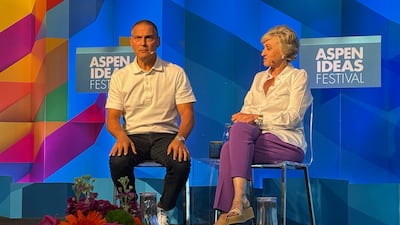
Reflecting on all of this made most of the dinner table conversations in Paris this week seem rather inconsequential. While everyone in Paris was chattering about Vogue World (“Why is Conde Nast even staging this event?” and “How much did people pay to attend?”) and succession planning at Chanel (“Would they really hire Hedi Slimane?” and “It’s the only job Sarah Burton wants.”), the world is quite literally years away from a point-of-no-return climate catastrophe, extreme political divides in Western democracies are threatening to elect a far-right government in France, and there is no clear path to manage an unprecedented new technology that will fundamentally change how we live and work as a global society.
That being said, though the festival seems to have made great efforts to make the event more inclusive, global and diverse, it can sometimes feel like a very privileged group of American people mostly talking amongst themselves. It was hard not to notice that most of the attendees were older, wealthy and privileged. (Aspen has one of the highest concentrations of billionaires in the United States, underscored by some sponsors shilling retirement services and new healthcare solutions.) An important talk I attended on LGBTQIA+ issues examining transgender rights was sparsely attended and there was little discussion about the ongoing wars and resulting humanitarian crises in Gaza and Sudan.
So, in the end, the crowd gathering in Aspen is in a bubble too. We are all in our own bubbles. That’s why I try to break out of mine whenever I can. It’s the best way to learn and form a more well-rounded view of the complex, multi-faceted, fascinating world we live in, all of which has a direct impact on the global fashion industry, too.
This Weekend on the BoF Podcast
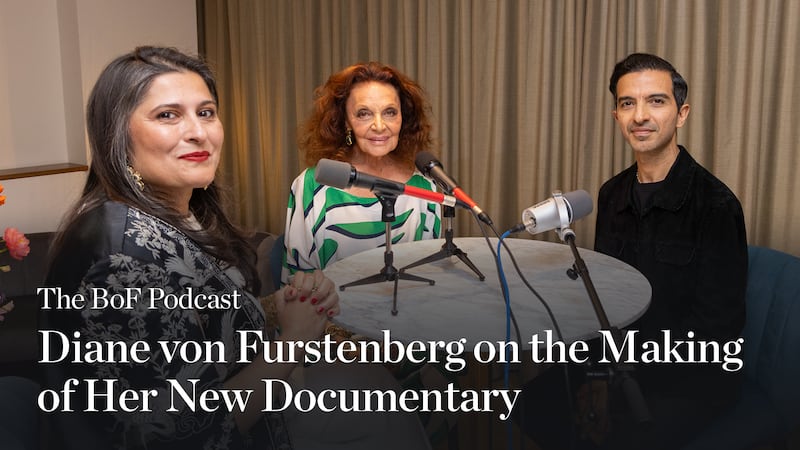 Opens in new window
Opens in new windowThe author has shared a Podcast.You will need to accept and consent to the use of cookies and similar technologies by our third-party partners (including: YouTube, Instagram or Twitter), in order to view embedded content in this article and others you may visit in future.
From her miraculous birth as the daughter of a Holocaust survivor to becoming a fashion powerhouse with her signature wrap dress, Diane von Furstenberg’s remarkable journey is one of resilience, innovation, and empowerment. She has broken glass ceilings and inspires women worldwide.
In a new documentary about her life called “Diane von Furstenberg: Woman in Charge,” Academy Award-winning filmmaker Sharmeen Obaid-Chinoy combines archival footage and intimate interviews with some of Diane’s closest friends and family to paint a vivid picture of a woman who has always been true to herself.
For this week’s episode of The BoF Podcast, Diane and Sharmeen spoke to me at the London premiere to share their experience of making the documentary and the new learnings this process surfaced about leading a life well lived.
Wishing you all a great weekend!
Imran Amed, Founder, CEO and Editor-in-Chief, The Business of Fashion
Plus, join me and the BoF Professional community in Manila on Tuesday, July 9 for a special event with Vogue Philippines. Secure your ticket now.
Here are my other top picks from our analysis on fashion, luxury and beauty:
1. Is Gap’s Turnaround Finally Working? Signs of recovery at the American retailer have convinced some analysts that its stock may be undervalued. Others say it’s too soon to tell, but even the sceptics note improvements on product, merchandising and markdowns.
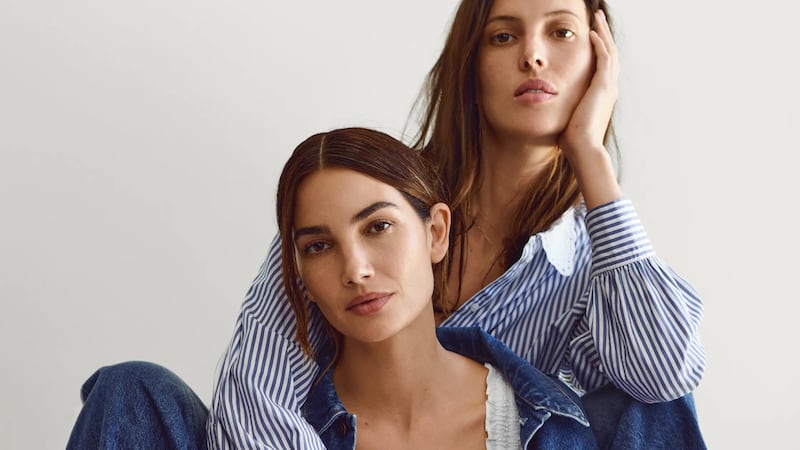
2. Dries Van Noten: So Long, Farewell. But after 38 years, 150 collections and 129 shows, is it possible that the best is still to come for Belgium’s finest? In an in-depth profile, Tim Blanks explores the departing designer’s past, present and future.
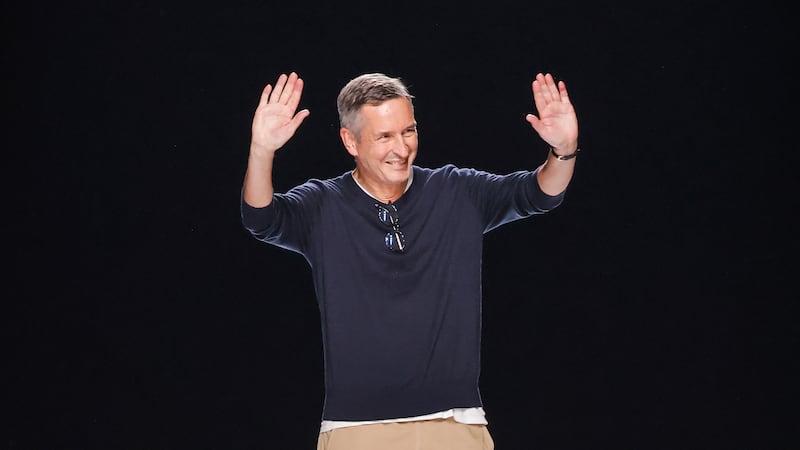
3. In Paris, a Season of Big and Small. A sense of monumental scale dominated the Paris men’s shows, but bigger wasn’t always better, writes Angelo Flaccavento.
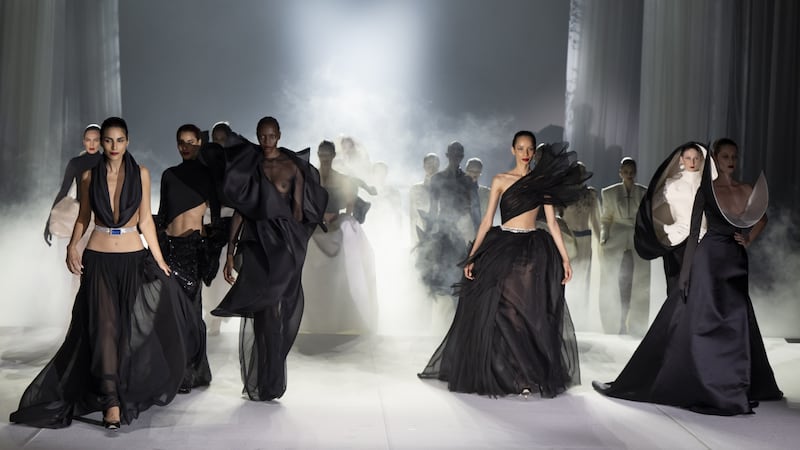
4. Why Influencers Want You in Their Group Chats. Instagram’s broadcast channel feature is becoming a favourite for online creators and brand founders as a place to seek feedback and share a more unvarnished look at their lives. It’s also proving to be a powerful marketing tool.

5. How the WNBA Tunnel Walk Became a Fashion Marketing Gold Mine. Superstar rookies-turned-pre-game models like Angel Reese and Cameron Brink have transformed the league’s tunnel walk into the hottest runway in town, with brands like Balmain, Prada and Versace clamouring to cash in on its newfound fashion appeal.
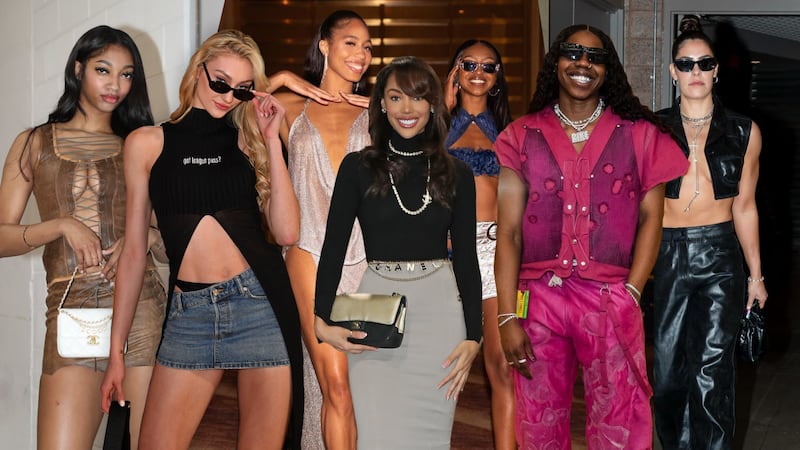
To receive this email in your inbox each Saturday, sign up to The Daily Digest newsletter for agenda-setting intelligence, analysis and advice that you won’t find anywhere else.

